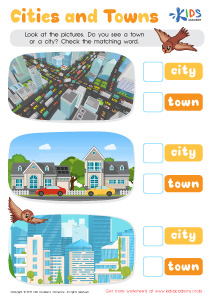Easy Songs Worksheets for Ages 3-9
9 filtered results
-
From - To
Discover our "Easy Songs Worksheets for Ages 3-9," designed to make learning fun and engaging. Each worksheet incorporates music to enhance reading, listening, and comprehension skills. Perfect for young learners, these resources utilize popular children's songs to introduce vocabulary, rhythm, and phonetics in an enjoyable way. With colorful illustrations and easy-to-follow activities, kids ages 3 to 9 will develop essential language abilities while enjoying their favorite tunes. Ideal for teachers and parents, these worksheets offer an innovative approach to early education that blends creativity with foundational learning. Turn every study session into a musical adventure!
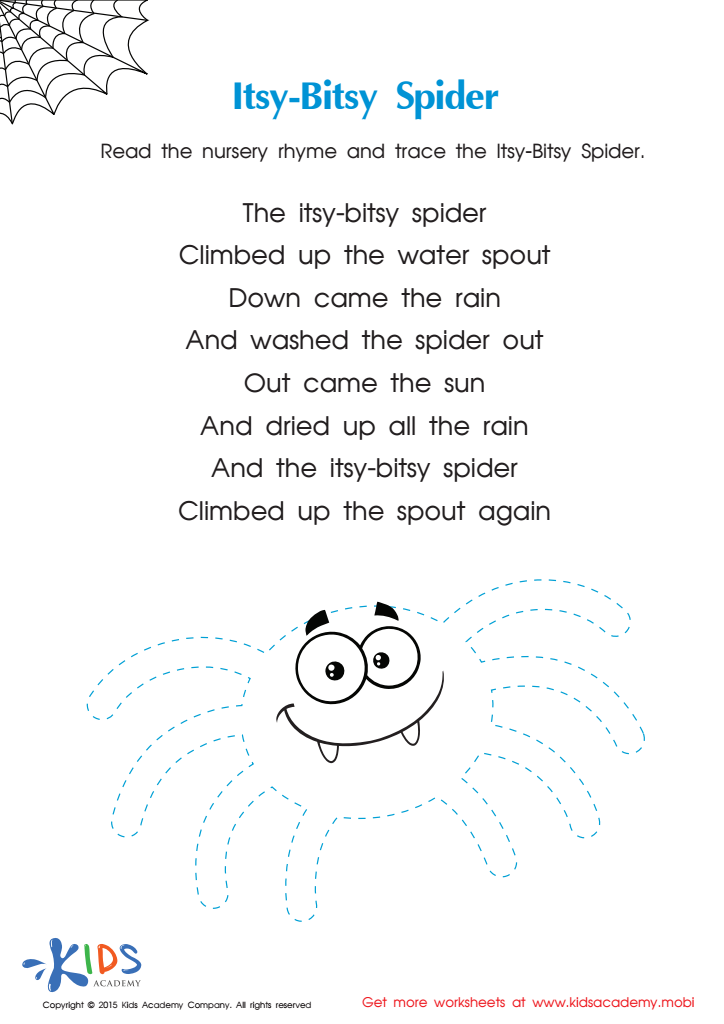

Itsy Bitsy Spider Nursery Rhyme PDF Worksheet


The Five Little Monkeys Nursery Rhyme Worksheet
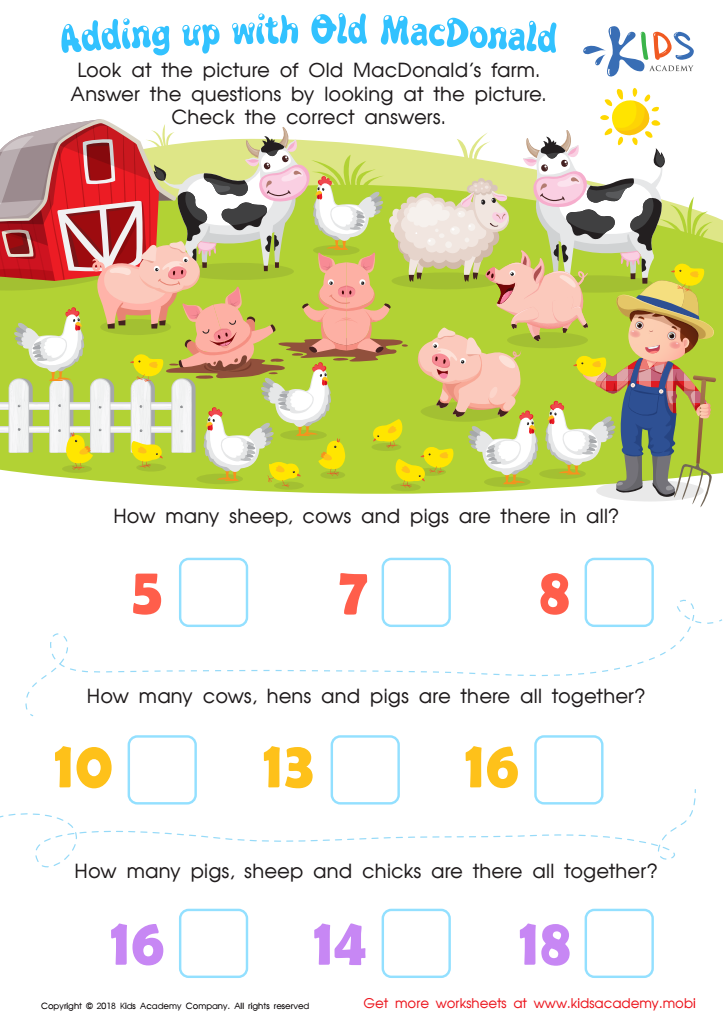

Adding Up with Old MacDonald Worksheet
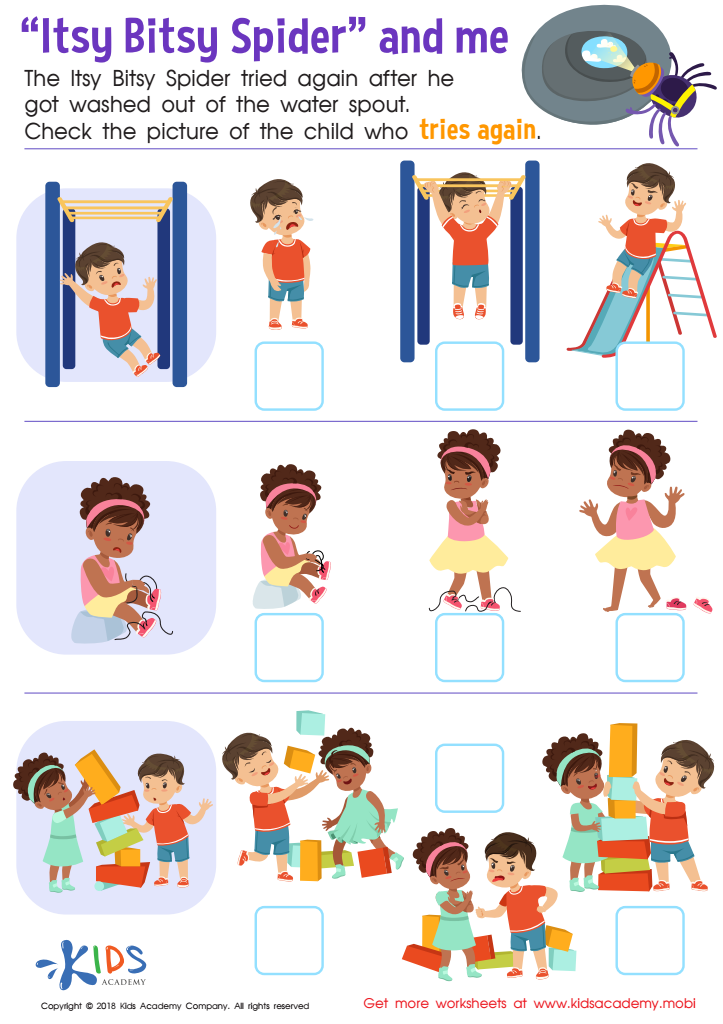

Itsy Bitsy Spider and Me Worksheet
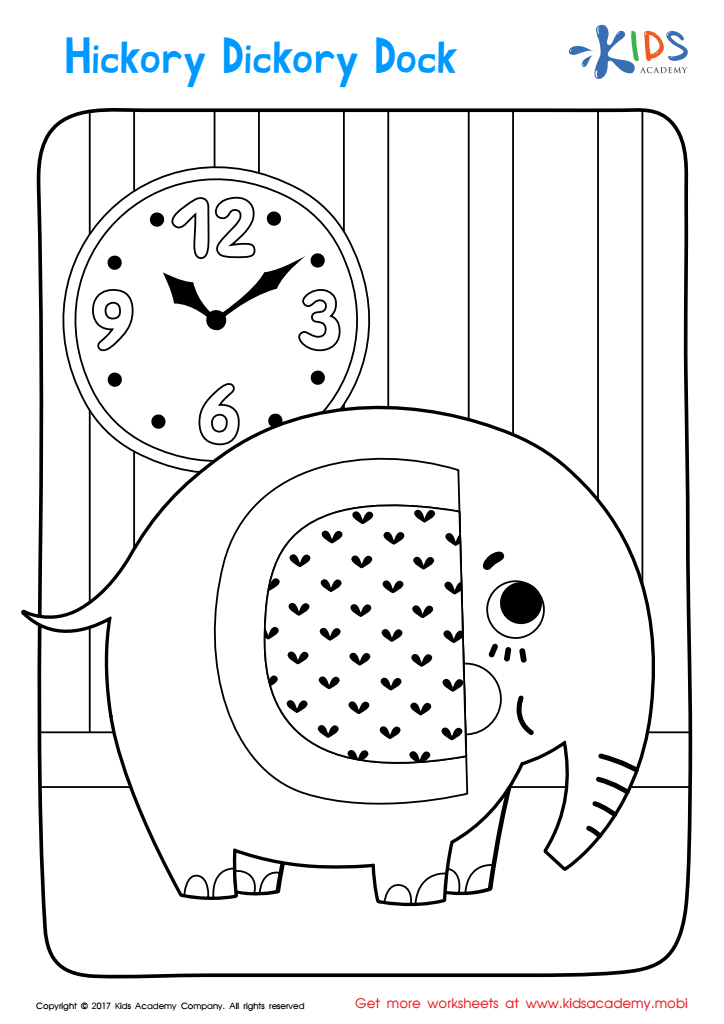

Hickory Dickory Dock Coloring Page
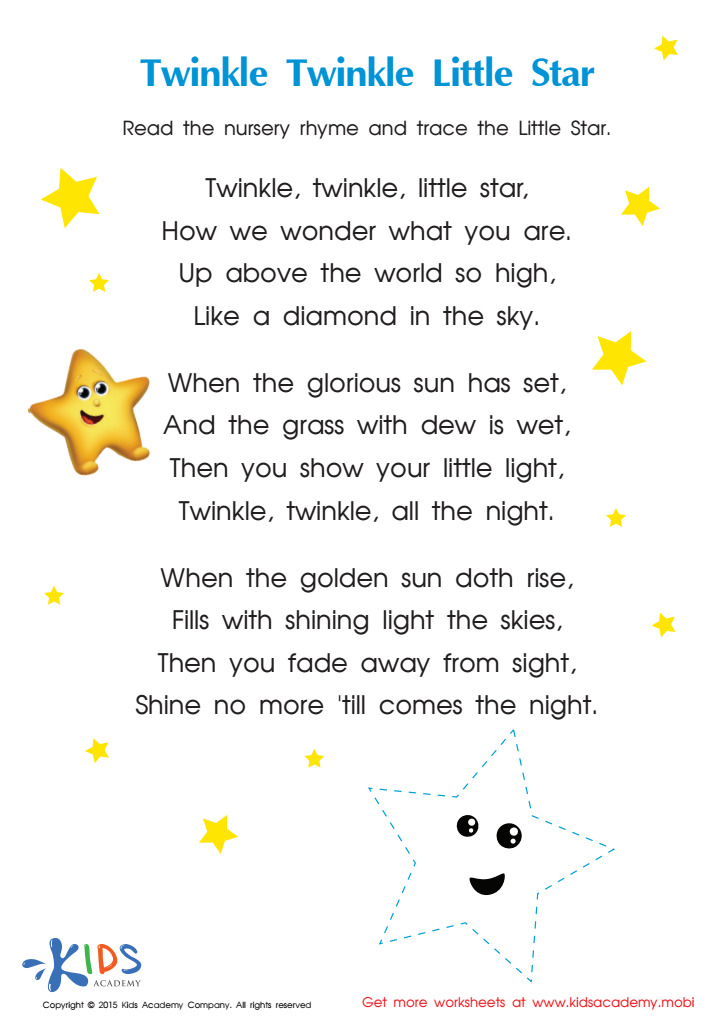

Nursery Rhymes: Twinkle Little Star Worksheet
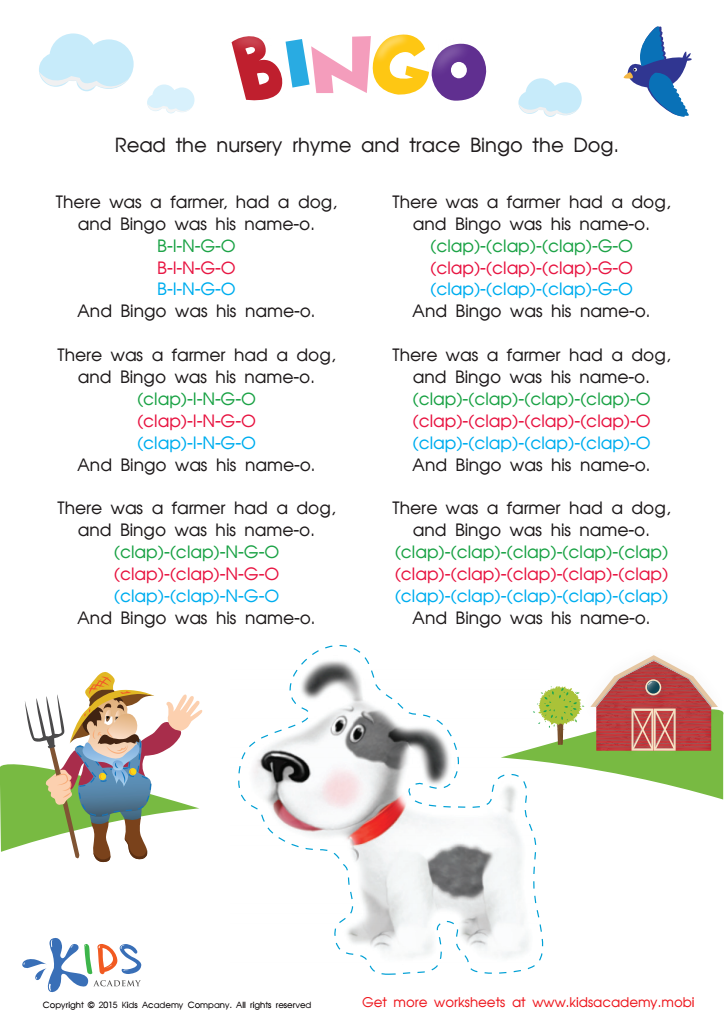

Nursery Rhymes: The Bingo Song Worksheet
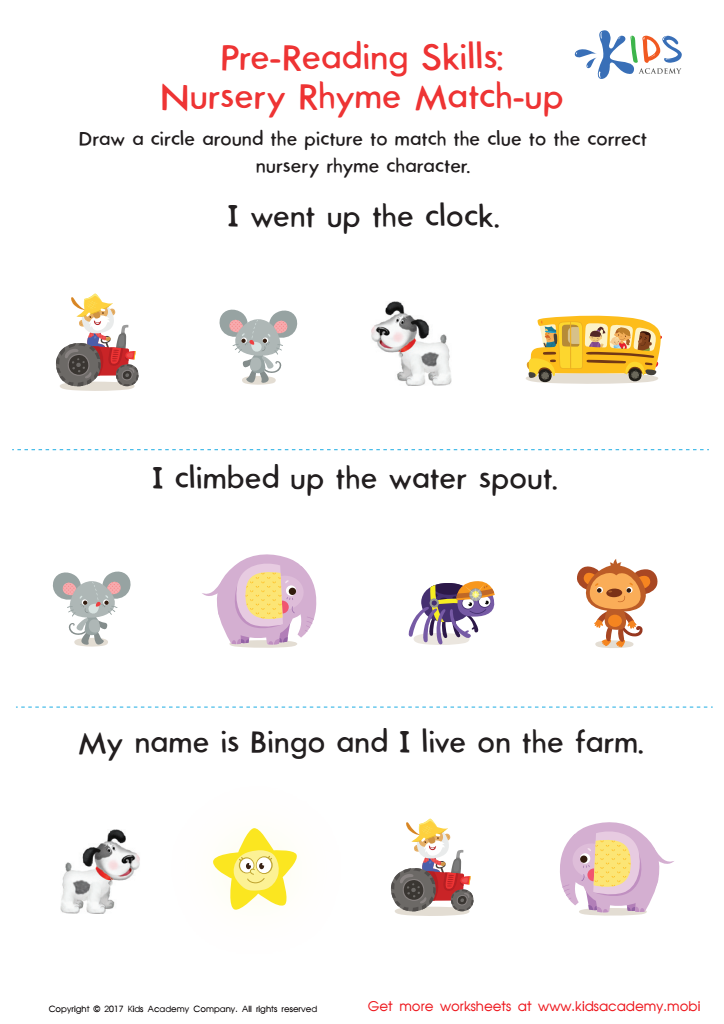

Nursery Rhyme Match–Up Worksheet
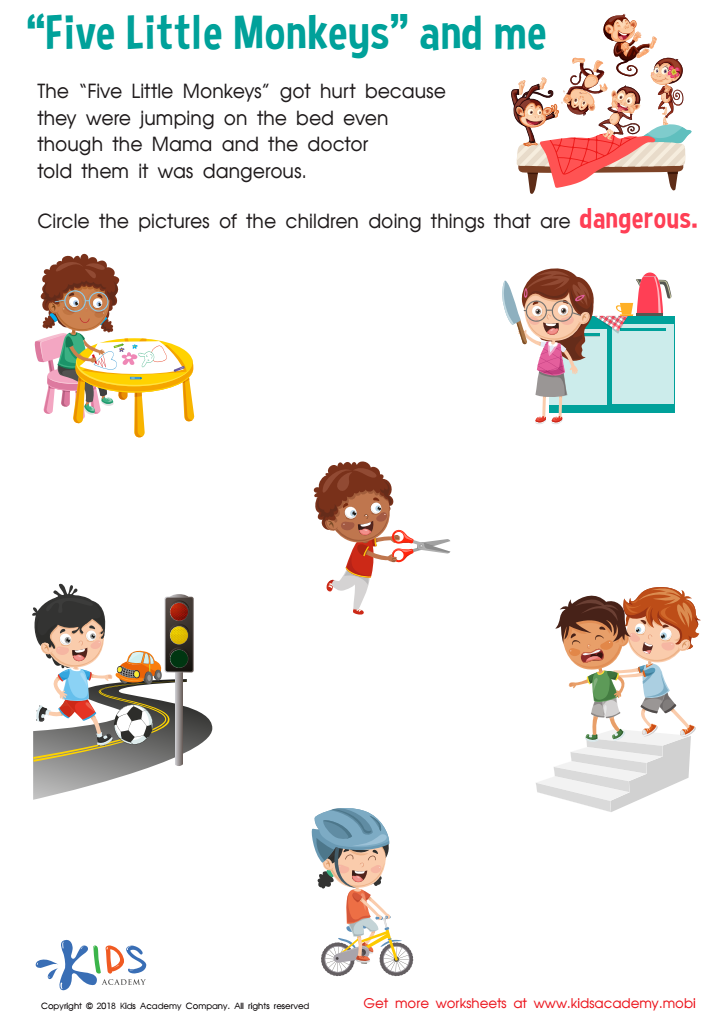

Five Little Monkeys and Me Worksheet
Easy Songs for Ages 3-9 are invaluable tools for parents and teachers because they significantly impact children's development in several key areas. Firstly, music naturally engages young children, making learning fun and fostering a love for education. These songs often cover fundamental topics like the alphabet, numbers, animals, and daily routines, helping kids to internalize essential knowledge effortlessly.
Moreover, music aids in language development. Singing along to songs encourages children to practice vocabulary, sentence structure, and pronunciation, all of which are critical in early childhood. It also boosts memory skills, as repeating songs and melodies helps children retain information longer and more efficiently.
Socially, Easy Songs provide a platform where children can sing together, promoting cooperative play, sharing, and empathy. They encourage participation and help children feel confident and included in group settings, crucial for their emotional and social development.
On a motor skills level, many Easy Songs include actions or dances that help kids improve their coordination and physical fitness. This blend of physical and intellectual engagement is particularly effective for kinesthetic learners.
In summary, Easy Songs for Ages 3-9 foster an inclusive, engaging, and multidimensional learning environment, making them indispensable for both parents and teachers aiming to support holistic child development.

 Assign to My Students
Assign to My Students






.jpg)









